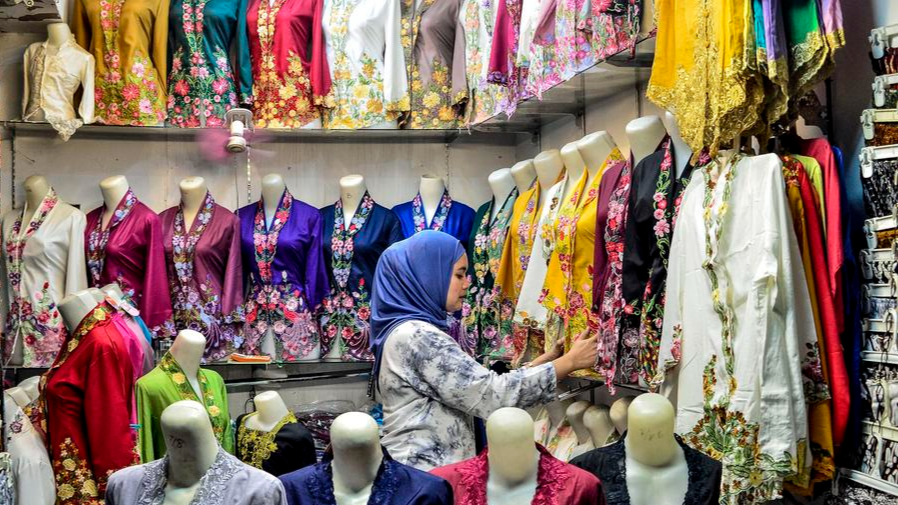
The Indonesia-United States tariff deal comes at huge cost to Indonesia, as it may keep it from attaining its renewable energy goal and threatens its export sector, analysts said, although some officials explained that the deal will facilitate investment and create more jobs.
The tariff deal, announced on July 15, reduced US tariffs from 32 percent to 19 percent, with transshipment adding the rate of the source country. Indonesia agreed to offer importing $15 billion in energy products, $4.5 billion in agricultural items and 50 Boeing jets from the US, and eliminating any duty on US goods.
The 19 percent “tariff is still high for us,” Tauhid Ahmad, executive director of the Institute for Development of Economics and Finance in Jakarta, said, adding that it will discourage Indonesian exporters from shipping to the US. Meanwhile, owing to duty-free facility offered to US goods, the “export of American products to Indonesia will become more massive.”
READ MORE: Trump says 19% tariff to be charged on Indonesian goods
Ahmad said Indonesia has to look for other markets like the European Union (EU), “where we can sell items like footwear, furniture and others. But this will not be easy for us to do.”
Indonesia’s exports in 2024 hit nearly $265 billion, with the US among its biggest markets.
Wahyu Ario Pratomo, a lecturer in economics at Indonesia’s University of North Sumatra, said any government tariff decision is aimed at keeping domestic industries competitive and protecting local jobs. But US President Donald Trump’s policy of imposing 19 percent tariffs on Indonesian products and asking Indonesia to allow duty-free goods “brought in from the US, is generally not fair,” Pratomo said.
Pratomo said he is hoping that the Indonesian government can negotiate with the US on certain items that are not produced domestically — either as raw materials or half-processed goods —- which can then be processed in Indonesia. He said this will help boost Indonesia’s imports of US goods and reduce the trade surplus that Indonesia currently runs with the US.
Luhut Binsar Pandjaitan, chairman of Indonesia’s National Economic Council (DEN), said on Thursday the trade deal will promote employment, support welfare services, boost labor-intensive industries, encourage more foreign investment and boost the overall economy, according to Jakarta Post.
“This policy is not a one-sided concession — it is a strategy to open investment opportunities, drive technology transfers, and expand the reach of Indonesian products in a more competitive way,” he said in a statement.
Transshipment is not an acceptable trade practice and was one of the key issues addressed in Indonesia’s tariff negotiations with the US, Indonesian Trade Minister Budi Santoso said on Thursday. “For example, if Vietnam's tariff is 20 percent, then goods transshipped from Vietnam via Indonesia may face a 40-percent tariff,” Santoso said, as cited by Antara News Agency.
Trump said on his Truth Social platform on July 15 this landmark deal opens up Indonesia's "entire market to the United States (US) for the first time in history".
Trump said if there is any trans-shipment from “a higher tariff country, then that tariff will be added on the tariff that Indonesia is paying.”
International environmental organization 350.org has warned against trade deals that would make Asian countries more dependent on US oil and gas imports, and has cited the US-Indonesia trade deal as an example.
“Our future is not for sale. Asian governments should not be arm-twisted into guzzling more US oil and gas when they have committed to phasing out fossil fuels and tripling renewable energy by 2030,” Cesar Carlito Baclagon, 350.org’s Asia regional finance campaigner, said in a statement.
Sisilia Nurmala Dewi, Indonesia team leader at 350.org, said increased imports of US oil and gas will move Indonesia “further away from the goal of replacing planet-heating fossil fuels with renewable energy”.
Dewi said in a statement that Indonesia’s renewable energy push is “the key to our very survival and the much-needed energy independence” promised by Indonesian President Prabowo Subianto. She said this goal “should not be abandoned or sacrificed on the altar of trade expediency”.
Prabowo has committed to boosting renewable energy use in Indonesia and transitioning away from the country’s dependence on coal-powered thermal plants. On July 9, during a visit to Brazil, Prabowo said Indonesia targets the use of 100 percent renewable energy by 2035.
Erica Tay, director of macro research at Malaysia’s biggest lender Maybank, said “the basis that Trump uses that Southeast Asian countries are (exporting more) to the US more than (what) they’re importing from the US, I think that point doesn’t hold water. The US’ comparative advantage is in services. So it has been a major exporter of services to the world”.
“It would be quite incorrect to just look at the economic relationship in terms of just goods trade imbalance,” Tay said.
ASEAN countries have faced more pressure from the US. Other members of the Association of Southeast Asian Nations (ASEAN) like Malaysia, Thailand and the Philippines are yet to reach agreement with the US to reduce the tariffs that Trump has threatened to impose.
READ MORE: Regional economies voice opposition against US tariff hike
Analysts at the London-based research firm BMI said during a July 17 webinar that the impact of the US tariffs, which will be enforced from Aug 1, can be mitigated by affected nations through bilateral deals with other nations.
Carolyn Pang, BMI’s Asia country risk analyst, told the webinar that the potential imposition of a 10 percent BRICS tariff is a main risk for Indonesia, which in January this year joined as a full member of the grouping of major developing nations.
Pang said the tariffs’ impact will be limited by Indonesia’s domestic-focused economy.
Leonardus Jegho is a freelance journalist for China Daily.
Contact the writers at prime@chinadailyapac.com


